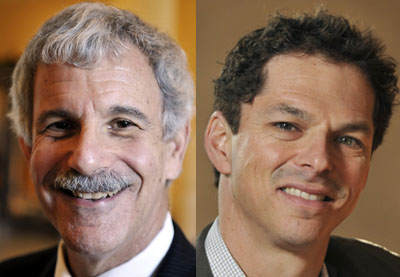AUGUSTA — Municipal officials from across Maine testified Friday in favor of two bills that would protect the state revenue sharing that sends millions of dollars to cities and towns each year.
The proposals, one sponsored by Assistant Senate Minority Leader Roger Katz, R-Augusta, and the other by Senate President Justin Alfond, D-Portland were heard by the Legislature’s budget-writing committee.
The Katz bill, L.D. 713, would direct some $200 million into city and town budgets across Maine over the next two years, according to state budget estimates. It would phase in full funding of revenue sharing over three years.
The state is supposed to give 5 percent of sales- and income-tax revenues to municipalities, which use the money to supplement the property tax revenue that funds local budgets. But lawmakers have scaled back revenue sharing in recent years, despite protests from municipalities.
Alfond’s bill, L.D. 940, would make revenue sharing a compact between the state and municipalities, a legal arrangement that would make it harder for legislators to reduce funding.
The state had shared revenue from sales and income taxes at the 5 percent rate from the 1980s until several years ago, the Maine Municipal Association said.
The association, which represents cities and towns, has said the state budget that ends in June funds revenue sharing at only 3.5 percent.
In the last four years, the Legislature has used some of the revenue-sharing money to fund state services. In 2012 alone, the association said, $44 million that would have gone to municipalities was spent on state services.
“The Legislature began misusing municipal revenue sharing about six years ago and has severely battered the program over the last four years,” said Geoff Herman, the Maine Municipal Association’s director of state and federal relations, in written testimony Friday.
Republican Gov. Paul LePage’s proposed budget for the next two years would suspend all revenue sharing, saving the state approximately $200 million over that period. That idea is opposed by many legislators, including some Republicans such as Katz.
The Legislature’s Taxation Committee voted Friday to remove LePage’s proposal from the state budget. Six Democrats voted in favor, while three Republicans voted no, according to a statement from House Democrats.
But Rep. L. Gary Knight, R-Livermore Falls, said the Republican vote reflected the committee’s lack of an alternative for filling the budget gap, not support for the elimination of revenue sharing.
On Thursday, Senate Republicans said caucus members will send letters to municipal leaders in their districts seeking alternatives to the governor’s plan while highlighting the state’s difficult fiscal climate.
“I realize that the governor must make a balanced budget proposal and he fulfilled that responsibility,” Katz said in written testimony on his bill, which would gradually increase revenue sharing back to 5 percent. “For those of us who disagree with the suspension of revenue sharing, it is now our responsibility to come up with other solutions to balance our budget.”
In testimony, Portland Mayor Michael Brennan said the city received $28 million in revenue sharing this year. If revenue sharing were fully funded next year, the city would get $41 million. Under LePage’s plan, it would get nothing.
“I think it’s important for this Legislature and this committee to, as quickly as possible, send a strong message that there is clear support for revenue sharing,” Brennan said.
Towns that lose revenue sharing and don’t cut services have few alternatives for raising money other than to increase property taxes.
According to the Tax Foundation, property tax revenue accounted for 40.6 percent of total state and local tax revenues collected in Maine in 2010, compared with 36.4 percent in 2008.
Waterville Mayor Karen Heck said suspending revenue sharing “would inevitably lead to significant property tax increases statewide.”
But legislative Republicans don’t necessarily agree. Katz said he particularly applauded LePage for broaching the topic of municipal consolidation as an alternative to revenue sharing. Many cities and towns said they have actively pursued service-sharing agreements.
“I’m a little bit uncomfortable that the suggestion that’s come out from a number of different avenues (is) somehow consolidation will help us cut our way to fairness,” said Rep. Michael Carey, D-Lewiston.
“It’s not a huge solution, but it’s raised the issue in conversation and I hope we continue that,” Katz said.
Katz is a co-sponsor of Alfond’s proposal. The bill would also establish a board of trustees to manage it, putting strong restrictions on the use of funds.
“We made a promise,” Alfond said in testimony. “And now it’s time to not only uphold our end of the bargain, but to permanently protect revenue sharing.”
Herman, the Maine Municipal Association lobbyist, said the bill would provide cities and towns with needed budgetary stability.
“The advantage from the municipal side is predictability,” he said.
Michael Shepherd can be contacted at:
mshepherd@mainetoday.com
Send questions/comments to the editors.



Comments are no longer available on this story